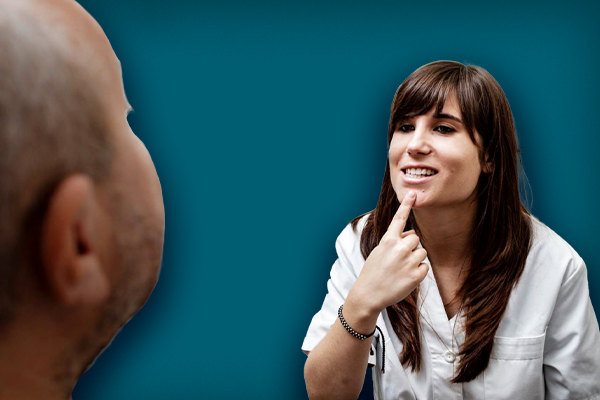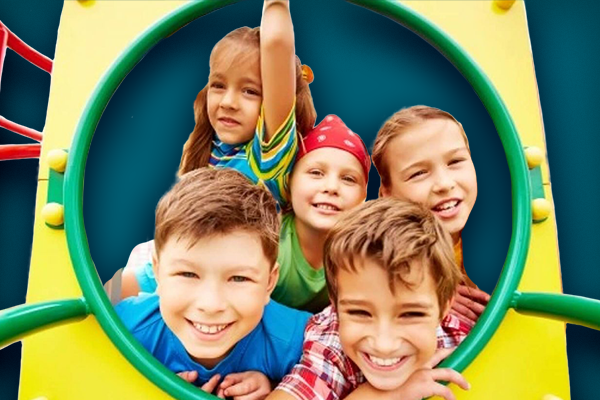Speech Therapy
Summit Speech Therapy
Communication Is A Vital Aspect Of Our Everyday Activities
There are numerous elements that contribute to our ability to interact and learn about the world around us.
Individuals who struggle to communicate might have a decreased quality of life, due to difficulties with communication. Individuals affected by speech and communication disorders may benefit from seeking out speech therapy since it provides them the ability to improve their confidence as well as crucial tools for daily living.


Speech Therapy for Adults
Often, we think of speech therapy being something that kids need help with rather than adults. However, speech therapy for adults is available, and it can provide a wide range of treatment options.
At Summit Speech Therapy in Frisco & Mckinney, TX, we work with adults facing all types of long-term and short-term instances of language and speech concerns.
One of the most common neurological impairments is a stroke. A stroke occurs when the brain does not get enough blood and/or oxygen, and cells die in some parts of the brain. A stroke can affect one or both sides of the brain.
It also affects different brain areas, including motor control, language skills, visual ability, and thinking skills. These injuries can be temporary or permanent, depending on which areas of the body are affected.
Dysarthria is a communication disorder that is brought on by damage to the muscles in the mouth, throat, and/or voice box. It can be caused by neurological conditions such as stroke, amyotrophic lateral sclerosis or Parkinson’s disease. It can also occur as a side effect of many medications.
It is characterized by difficulty speaking and producing words because of muscle stiffness and weakness. As a result, speech might sound monotonic and lack inflection. Dysarthria often results in problems swallowing and speaking clearly, leading to food getting into the lungs instead of the esophagus due to an impaired gag reflex.
Aphasia is a language disorder that typically begins after a head injury, stroke, or brain tumor, which causes damage to the part of the brain responsible for producing and understanding language. Individuals with aphasia might have difficulty understanding speech, naming everyday objects, reading and writing, repeating words or phrases, reading comprehension, using nouns or verbs correctly in sentences, and expressing thoughts verbally.
The symptoms usually improve over time but should not be ignored. Aphasia should not prevent an individual from being able to live independently or participate in enjoyable activities. The best way to combat aphasia is through intensive therapy which a speech-language pathologist can provide.
Dysphagia is a swallowing disorder that is typically caused by neurological problems such as strokes, tumors, and Parkinson’s Disease. It can also be caused by surgery involving the throat or cancer treatment.
Dysphagia often disrupts normal eating and might lead to gasping for air or symptoms of choking. Dysphagia should not be ignored, and symptoms will worsen over time without proper care. Seek treatment immediately.
Voice disorders are classified as voice impairments or voice abnormalities. Voice disorders can affect the vocal fold function, subglottic airflow, laryngeal muscle function, and/or vocal tract resonation.
They can be caused by an individual’s lifestyle (smoking), medical conditions (diabetes, Parkinson’s disease), injuries to the neck or throat, vitamin B12 or iron deficiencies, overuse of voice in singing or teaching, or abuse of illicit substances. Voice disorders that are caused by lifestyle changes typically improve with changes to the person’s habits.

Speech Therapy for Kids
Hearing that your child may need to get some help with speech is not always easy. Many times, parents are unsure of where or how to get their child the speech therapy for kids they need.
However, doing so as soon as possible can help ensure your child is receiving the care they need to flourish and develop into the best version of themselves. The good news is that there are tools and resources available to help most children.
Alternative Augmentative Communication (AAC) is often used when the child has not started with speech or needs to improve their speaking skills. AAC can be used when the child is still in preschool, before they can talk.
Receptive language is the ability to understand and interpret information from a variety of sources. This includes what is heard, seen, and/or read. There are many opportunities for your child to develop receptive language skills by listening to stories, watching videos, and reading books.
A speech-language pathologist can use these opportunities to assess your child’s receptive language skills comprehensively.
Expressive language is the ability to speak, produce words, and use grammar. This includes an understanding of how to combine words in a meaningful way. Expressive language is tested through nonverbal assessments, including gestures, drawings, or play.
A speech-language pathologist can use these techniques to assess your child’s expressive language skills comprehensively.
Auditory processing is the ability to listen and comprehend information from a variety of sources. These might include what is spoken, spoken with background noise, or music. Auditory processing can be tested through a comprehensive assessment which includes looking at hearing thresholds, speech perception in different listening conditions, and listening comprehension in other listening conditions.
Auditory processing disorder (APD) affects a person’s ability to hear and process sound normally. APD may affect a person’s ability to understand speech when there is background noise, two people are talking simultaneously, or when they have trouble following conversations in crowded places such as school hallways.
Generally, these difficulties begin in early childhood or adolescence and may be accompanied by other problems, such as delayed language acquisition and difficulty following directions or solving problems.
Stuttering is an interruption in the normal fluency of speech. The words, phrases, or entire discourse may be repeated, drawn-out, shortened, sustained, or unfinished.
The interruption can range from a few repetitions of a word to a complete block of communication. People who stutter have a variety of life experiences and abilities. Like other chronic health conditions, the only thing that defines stuttering is how it affects somebody’s life. Many people who stutter live productive lives without limitation because the disorder does not affect their intellectual capacity or physical well-being.
A speech therapist can provide stuttering therapy. In addition, speech-language pathologists specializing in fluency disorders help people who struggle with stuttering reduce the disfluencies and improve their quality of life.
Social skills are the abilities or qualities that affect one’s ability to interact with other people. It can be measured by the person’s interactions with others and how they react to those interactions. A lack of social skills can negatively impact many areas of life, such as school, work, and relationships.
Social skills deficits can be caused by a variety of reasons, such as bullying, autism spectrum disorder (ASD), intellectual disabilities (ID), and developmental delays (DD). These challenges may also occur alongside other conditions such as attention deficit hyperactivity disorder (ADHD) or learning disabilities (LD).
People who struggle socially might experience difficulty reading social cues and understanding appropriate behavior in different situations.
Autism is a developmental disability that includes difficulties in social interaction, verbal and nonverbal communication, and repetitive behaviors. Speech-language pathologists who specialize in autism guide people on the autism spectrum to improve their social skills.
Autistic people may have difficulty initiating or maintaining conversations, taking turns in conversation, understanding what is being said to them, or reading non-verbal cues such as tone of voice or facial expressions.
Autism is a developmental disability that includes difficulties in social interaction, verbal and nonverbal communication, and repetitive behaviors. Speech-language pathologists who specialize in autism guide people on the autism spectrum to improve their social skills.
Autistic people may have difficulty initiating or maintaining conversations, taking turns in conversation, understanding what is being said to them, or reading non-verbal cues such as tone of voice or facial expressions.
Do You Have A Child Who Is Struggling With Speech?
We specialize in treating communicative disorders that affect all aspects of life.
Our staff is fully trained to help your loved one meet their communication goals through functional, effective and research-based therapy. We also attend IEP and ARD meetings to make sure academic help is meeting functional needs.

When Should I Refer My Child To Speech Therapy?
- Using two to three words phrases
- Using one to two word questions
- Verbalizing toilet needs
- Requesting items by name
- Following two-part commands
- Counting to ten
- Listening to simple stories and answering questions
- Using sentences of four to five words
- Describing experiences at school and home
- Vocabulary of fewer than 900 words
- Knowing common opposites
- Grammatically correct speech that is completely intelligible
- Following three commands given without interruptions
- Knowing his/her age
- Identifying common objects in terms of use
